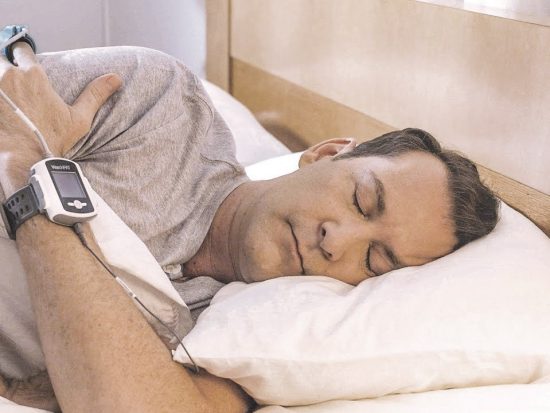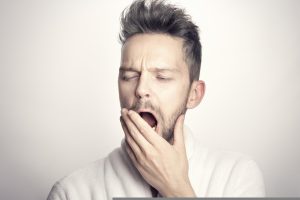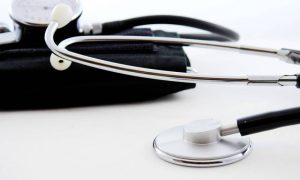Can you drive with Sleep Apnoea?
DVLA Sleep Apnoea (excessive sleepiness and driving)
Driving with a positive diagnosis of Sleep Apnoea is only possible if symptoms are controlled.
The Gov.UK website has provided information regarding Sleep Apnoea and driving:
Excessive sleepiness and driving
Excessive sleepiness means that you have had difficulty concentrating and have found yourself falling asleep – for example, while at work, watching television or when driving.
You must tell DVLA if you have:
- Confirmed moderate or severe Obstructive Sleep Apnoea syndrome (OSAS), with excessive sleepiness
- Either narcolepsy or cataplexy, or both
- Any other sleep condition that has caused excessive sleepiness for at least 3 months – including suspected or confirmed mild OSAS
You must not drive until you are free from excessive sleepiness or until your symptoms are under control and you’re strictly following any necessary treatment.
You can be fined up to £1,000 if you do not tell DVLA about a medical condition that affects your driving. You may be prosecuted if you’re involved in an accident as a result.
Ask your doctor if you’re unsure if your excessive sleepiness will affect your driving.
How to drive safely and legally with OSA
OSA and the DVLA: How to ensure you keep your license
If you fear OSA could cost you your job – don’t! Many people wrongly believe that having Obstructive Sleep Apnoea (OSA) means the DVLA will take away your license – and this simply isn’t true.
So, can you drive with Sleep Apnoea?
If you have OSA or suspect you may have it, you shouldn’t worry about losing your driving license. The exact regulations vary depending on whether or not you are a commercial driver. If you need to learn about your commercial driving status, follow the link below and subsequent links on the GOV.uk site:
The DVLA’s Updated Guidelines for Sleep Apnoea
If you are likely to be sleepy to the point where your driving could be impaired, you must not drive. If you do, you are breaking the law, which may invalidate your insurance. If your GP, consultant, or other medical professional tells you that you must not drive, you must not do so.
OSA is not the problem – tiredness is.
You are responsible for deciding whether you are fit to drive. Tiredness is one of the biggest killers in driving accidents; statistics show that as many as 300 deaths yearly result from a driver falling asleep. The research also found that young drivers (18-24) are at higher risk of having an accident, as 29% stated they started a journey feeling sleepy (1).
Have you ever fallen asleep whilst driving?
Daytime tiredness from Sleep Apnoea can impair your driving to a similar degree as alcohol.
How OSA affects your driving insurance
While many drivers know that the DVLA should be informed about their OSA diagnosis, informing insurance companies seems to be largely overlooked. However, it is also very important, and failure to do so could invalidate your insurance. Do not fear, though – informing your insurance company should make no difference in your coverage or your premium.
If you are treated differently due to your OSA diagnosis, the insurance company could break the Disability Discrimination Act 1995. If the DVLA considers you fit to drive and hold a license, then informing your insurer about your OSA should simply be a formality.
The Association of British Insurers and The Scottish Association for Sleep Apnoea both have information on their websites concerning this issue.
When do I need a Sleep Test?
There are many symptoms and indicators of OSA, such as choking during sleep, snoring and morning headaches. If you want to read more about Sleep Apnoea, follow our link: Obstructive Sleep Apnoea.
We have a new risk assessment questionnaire you can use for free, click the banner below.
If you are concerned or others are worried about your sleep, this is where you might think about a sleep test. One of the unique benefits of our In-Home Sleep Test is that you can get your confirmation privately, allowing you to decide your next step.
Alternatively, your GP can refer you to a sleep clinic for a sleep study; however, waiting times for this can often be extensive.
Our in-home sleep tests are a reliable alternative to the NHS sleep clinic.
NHS Sleep Clinic, What Happens Next?
If the sleep clinic confirms the diagnosis of Obstructive Sleep Apnoea but states that any sleepiness during waking hours is not excessive — you can continue to drive, and there is no need to notify the DVLA. The DVLA suggests that if the tiredness gets worse, go back to your GP.
If the Sleep Clinic confirms moderate or severe OSA with excessive sleepiness, you must not drive. Your sleep clinic must be satisfied that your CPAP or other treatment has your sleepiness under control. You must then notify the DVLA in writing.
If you need any further advice on Sleep Apnoea and driving, contact us.
REFERENCES
- Hendy Car & Van Store (2021) Driver fatigue: An Essential Guide to Road Safety, Driver Fatigue: An Essential Guide to Road Safety. Available at: https://www.hendycarstore.co.uk/driver-fatigue-essential-road-safety-guide/ (Accessed: November 1, 2022).




